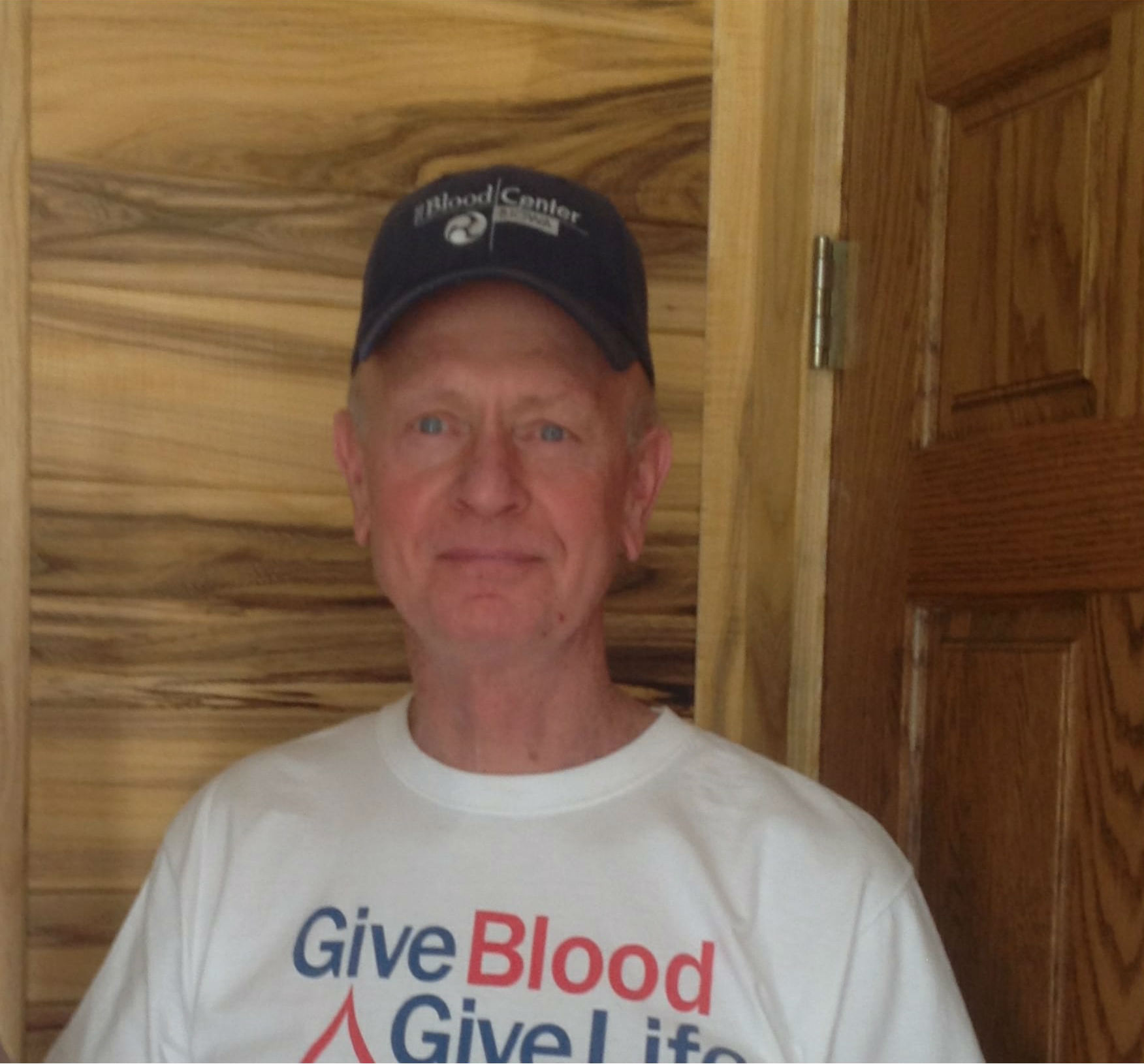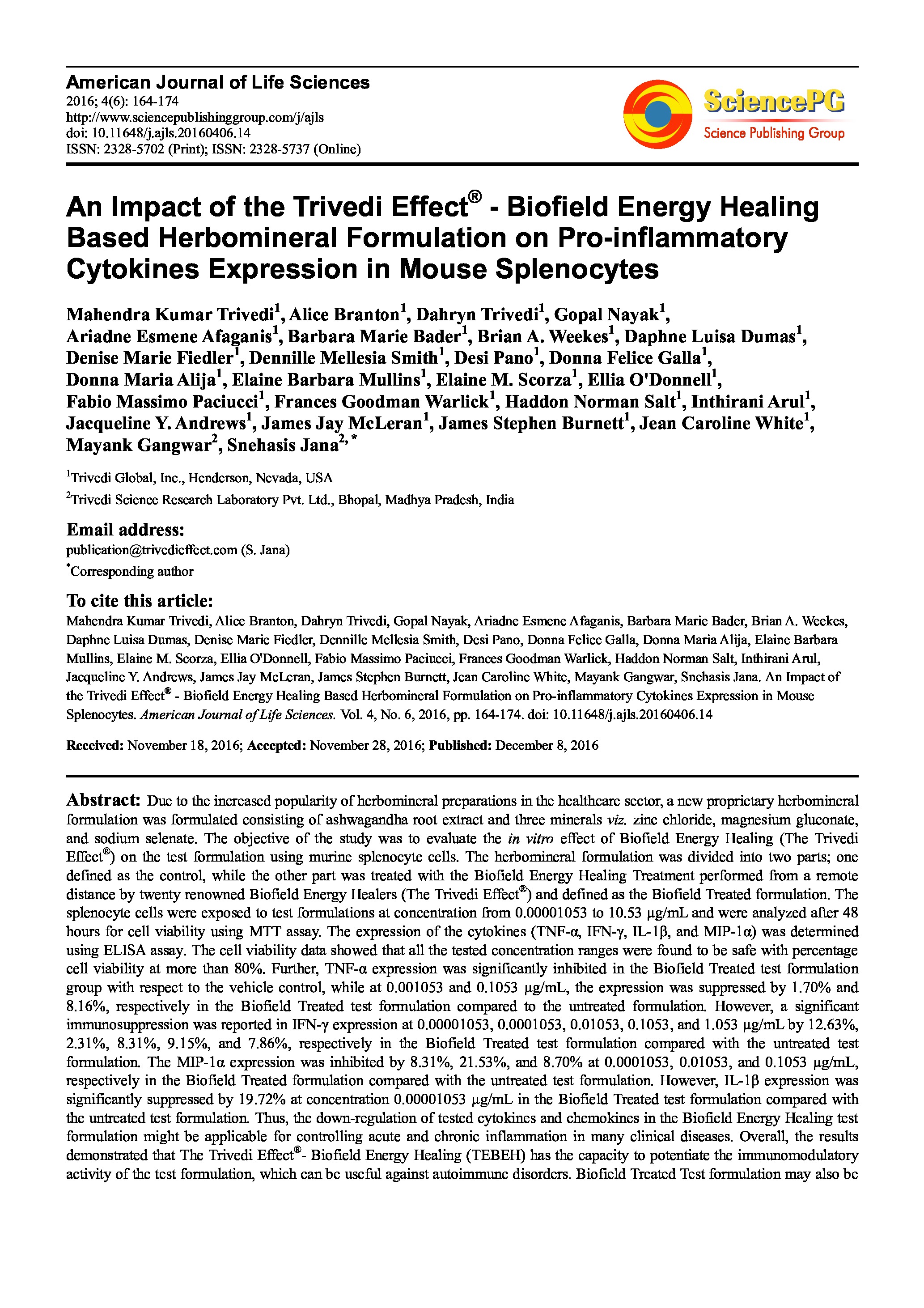Date of upload:
21.03.2017
Co-author:
Mahendra Kumar Trivedi, Alice Branton, Dahryn Trivedi, Gopal Nayak, Ariadne Esmene Afaganis, Barbara Marie Bader, Brian A. Weekes, Daphne Luisa Dumas, Denise Marie Fiedler, Dennille Mellesia Smith, Desi Pano, Donna Felice Galla, Donna Maria Alija, Elaine Barbara Mullins, Elaine M. Scorza, Ellia O'Donnell, Fabio Massimo Paciucci, Frances Goodman Warlick, Haddon Norman Salt, Inthirani Arul, Jacqueline Y. Andrews, James Stephen Burnett, Jean Caroline White
Abstract:
Due to the increased popularity of herbomineral preparations in the healthcare sector, a new proprietary herbomineral formulation was formulated consisting of ashwagandha root extract and three minerals viz. zinc chloride, magnesium gluconate, and sodium selenate. The objective of the study was to evaluate the in vitro effect of Biofield Energy Healing (The Trivedi Effect®) on the test formulation using murine splenocyte cells. The herbomineral formulation was divided into two parts; one defined as the control, while the other part was treated with the Biofield Energy Healing Treatment performed from a remote distance by twenty renowned Biofield Energy Healers (The Trivedi Effect®) and defined as the Biofield Treated formulation. The splenocyte cells were exposed to test formulations at concentration from 0.00001053 to 10.53 µg/mL and were analyzed after 48 hours for cell viability using MTT assay. The expression of the cytokines (TNF-α, IFN-γ, IL-1β, and MIP-1α) was determined using ELISA assay. The cell viability data showed that all the tested concentration ranges were found to be safe with percentage cell viability at more than 80%. Further, TNF-α expression was significantly inhibited in the Biofield Treated test formulation group with respect to the vehicle control, while at 0.001053 and 0.1053 µg/mL, the expression was suppressed by 1.70% and 8.16%, respectively in the Biofield Treated test formulation compared to the untreated formulation. However, a significant immunosuppression was reported in IFN-γ expression at 0.00001053, 0.0001053, 0.01053, 0.1053, and 1.053 µg/mL by 12.63%, 2.31%, 8.31%, 9.15%, and 7.86%, respectively in the Biofield Treated test formulation compared with the untreated test formulation. The MIP-1α expression was inhibited by 8.31%, 21.53%, and 8.70% at 0.0001053, 0.01053, and 0.1053 µg/mL, respectively in the Biofield Treated formulation compared with the untreated test formulation. However, IL-1β expression was significantly suppressed by 19.72% at concentration 0.00001053 µg/mL in the Biofield Treated test formulation compared with the untreated test formulation. Thus, the down-regulation of tested cytokines and chemokines in the Biofield Energy Healing test formulation might be applicable for controlling acute and chronic inflammation in many clinical diseases. Overall, the results demonstrated that The Trivedi Effect®- Biofield Energy Healing (TEBEH) has the capacity to potentiate the immunomodulatory activity of the test formulation, which can be useful against autoimmune disorders. Biofield Treated Test formulation may also be useful in anti-aging, anti-inflammatory, stress management and in preventing immune-mediated tissue damage in organ transplants by improving overall health and quality of life.

